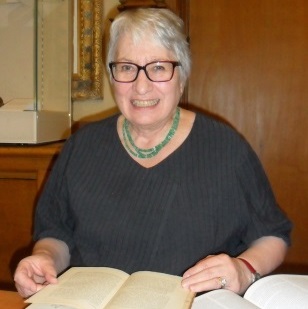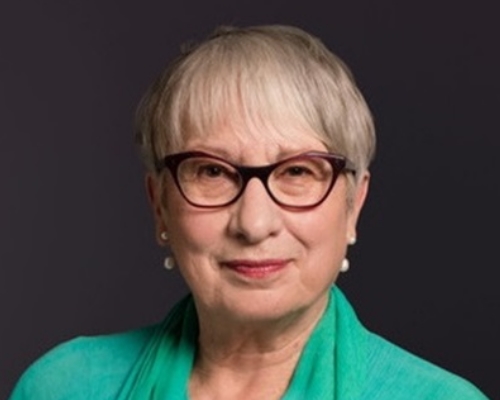How can we make science careers more attractive for talented and brilliant people who might be lost to science? What can we do to make labs and workplaces more supportive and the people in charge more accepting and respectful of people who are not currently part of the ingroup?

Little did I know that, having just started as chair of our new Diversity Committee, that gender bias would suddenly come into the spotlight of public opinion. This followed the unacceptable remarks at a public event attributed to one of our most distinguished Fellows. Sir Tim Hunt was baffled by the effect of his words on others, and I admit that I too was baffled, but for very different reasons.
His remarks at first seemed to me just a drop in the bucket of millions of similar ones made every day about women in the workplace, often by decent men who would be horrified to be regarded as misogynists. For me they confirmed an age old stereotype of women as trouble, so old that it goes back to Adam and Eve. But they were the drop that finally caused the bucket to flow over. They became a catalyst for a deep-seated bitterness to pour out of people, not only women, who simply felt that enough was enough. This was an outpouring waiting to happen. It needed just that little drop.
What is the bitterness about? Injustice, plain and simple. And it coincides with my own anxieties as chair of the Diversity committee. The bitterness is sustained by the strong feeling that women have not had a fair chance to succeed in science. This is a serious problem in science in general, but it is also a problem for the Royal Society. It is a fact that only 105 out of 1569 Fellows are women (6.7%). It is a fact that only 22 out of 106 of the awards and medals given by the Society over the last 5 years were given to women and that over those five years only 22% of the successful candidates on the Royal Society’s University Research Fellows and Sir Henry Dale Fellows were women.
There are many signs of improvements: the low rate of applications and the low rate of success of women in various fellowship competitions is being examined; the Rosalind Franklin Prize represents a great opportunity to celebrate women; Dorothy Hodgkin Fellowships are rightly seen as spearheading beneficial changes in the conditions for postdoctoral fellowships. Rather more women Fellows are getting elected in recent years and hopefully this trend will continue. Most striking of all, 11 out of 23 members of Council, the elected ruling body of the Society, are women. But are these signs strong enough to quell the disquiet?
As the case of Tim Hunt has shown, prejudice is unacceptable even if meant in jest. The Royal Society as an institution quickly dissociated itself from his remarks. It was necessary to affirm the truth of its genuine wish to do away with the obstacles that stand in the way of women’s careers in science. To do nothing would send a signal that it is acceptable to trivialise women’s achievement in science. Institutions can do things that individuals can’t. As individuals, whether we are Fellows of the Royal Society or anyone else, we are all capable of saying things that are inappropriate and foolish. Without being aware of it, we favour our ingroup, and are ready to disrespect outgroups, often in rather subtle ways. We are human and we are fallible. Institutions try to transcend this weakness, even if they don’t always succeed.
The Royal Society has been referred to as a bastion of old, white, males, but this caricature is getting rapidly out of date. There are strong stirrings of change and these go back to the predecessors to the Diversity Committee, EDAN and the Diversity Programme Steering Group. The President, Sir Paul Nurse, has stated that achieving a better gender balance is a priority. As one of the short videos celebrating 350 years of scientific publishing shows, women can now feel as Equals, but this dates from quite recent changes in the Royal Society’s history.
The Society has changed many times over the last 350 years, and we are now undergoing such a change again. We now know that a diverse and mixed workforce is the most productive way to conduct science. We now proclaim that any senior scientist has a responsibility to bring the benefits of diversity to their lab. He or she has to make sure that this environment nurtures and cherishes the most talented scientists, whatever their circumstances, regardless of gender, age, class, culture or provenance.
What to do next?
How can we make science careers more attractive for talented and brilliant people who might be lost to science? What can we do to make labs and workplaces more supportive and the people in charge more accepting and respectful of people who are not currently part of the ingroup?
A number of Fellows including Athene Donald, Dorothy Bishop and David Colquhoun have spontaneously written about their determination to work for the advancement of women. We now have a strategy for Diversity, and this does not only encompass women, but also other currently disadvantaged groups. For example, we have a series of case studies that showcase different roads to science and unusual role models.
I believe that for us at the Royal Society the main problem is not overt prejudice, but the hidden anachronistic assumptions and attitudes, the sort that sometimes surface in jokes. One frequently touted remedy is implicit bias training, but I am a bit wary of this. I will not rehearse the many studies that have shown that virtually all of us, women as well as men, are harbouring such a bias to some extent, even if we consciously reject it. Training has been shown to be beneficial in that it shocks people when they confront the truth that what they consciously think is not the same as what they feel unconsciously. However, our enlightened selves exert rather weak control on our everyday behaviour, and every one of us is only too ready to think of themselves as less prejudiced than the average person. It will be very difficult to root out the often subtle put-downs of women and other members of out-groups that slip into references or discussions. We can detect them more easily in others than in ourselves, and therefore we can help each other by calling them out. Calling out unacceptable remarks made by Fellows in public is a case in point.
At the Diversity Committee we are considering a number of activities that might tame our inner dinosaur and celebrate our enlightened phoenix. I will report on these activities as they happen, and they will actively involve the Fellowship, the grant holders, the alumni, the staff, in short, everybody connected with the Royal Society.
All of us on the committee are determined that what we do is not merely a gesture. There will be no overnight solution. We are in it for the long haul.

